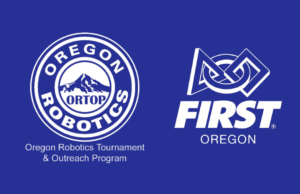FIRST LEGO League introduces science, technology, engineering and math (STEM) to children through fun, exciting hands-on learning. Students gain real-world problem-solving experience through a guided, global robotics program, where they engage in hands-on STEM experiences that build confidence and a passion for learning. FIRST LEGO League Explore is available to children in grades 2 to 4 and FIRST LEGO League Challenge is available to those in grades 4 to 8.
What is a Teacher’s Role?
Some teachers will want to explore the possibility of co-coaching an after-school team with the help of some parents. Others will be interested in providing their classroom to parents who are interested in starting a team. We encourage teachers and parents to learn more about these high-impact programs by reviewing this website as well as the FIRST Inspires website. FIRST LEGO League teams typically meet outside of regular school hours. Teachers also have the option of using FIRST LEGO League as a classroom activity. To support this option, Class Packs are available.
Free Workshops
We offer both remote and in-person workshops for parents and teachers who are interested in learning more about what it would take to coach a team.
- Introduction to FIRST Programs, ORTOP’s roles, Team Formation and More!
- Nuts and Bolts for FIRST in Oregon
- Beginning SPIKE Prime Programming
- Intermediate SPIKE Prime Programming
For more information click here.
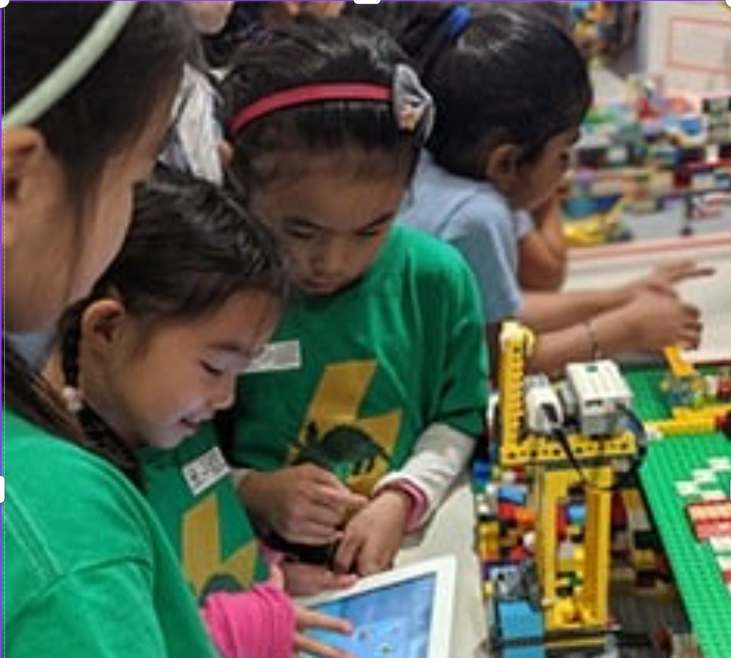 Students work in small groups and explore real-world topics such as community, energy, transportation, urban design and more.
Students work in small groups and explore real-world topics such as community, energy, transportation, urban design and more.
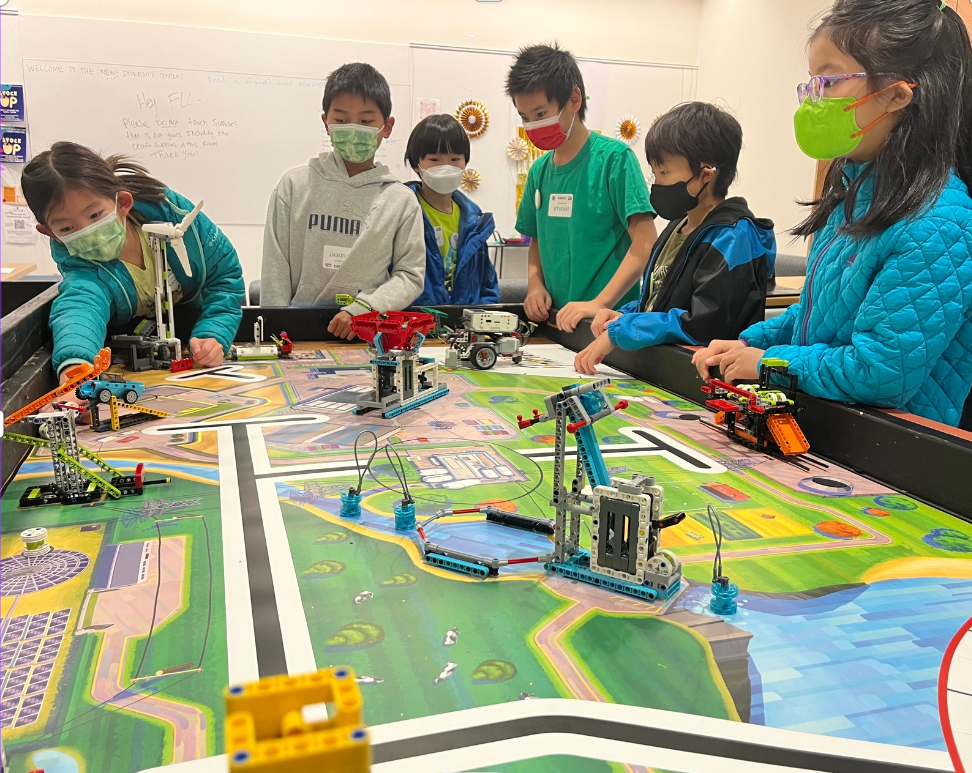 Students learn to design, build, and code a robot using LEGO kits and drag-and-drop programming.
Students learn to design, build, and code a robot using LEGO kits and drag-and-drop programming.
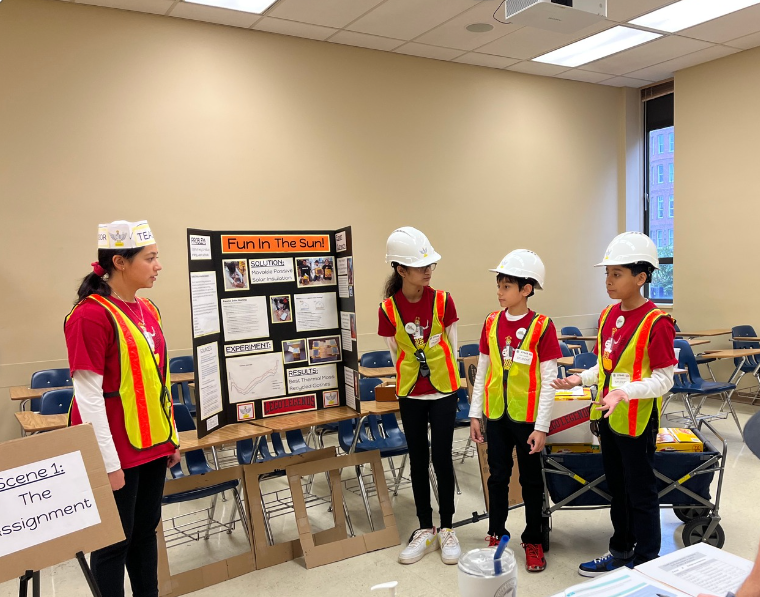 Presenting and sharing is an important part of Project Based Learning. Students share what they have learned about the annual real-world challenge and demonstrate how their robot accomplishes missions based on the theme.
Presenting and sharing is an important part of Project Based Learning. Students share what they have learned about the annual real-world challenge and demonstrate how their robot accomplishes missions based on the theme.
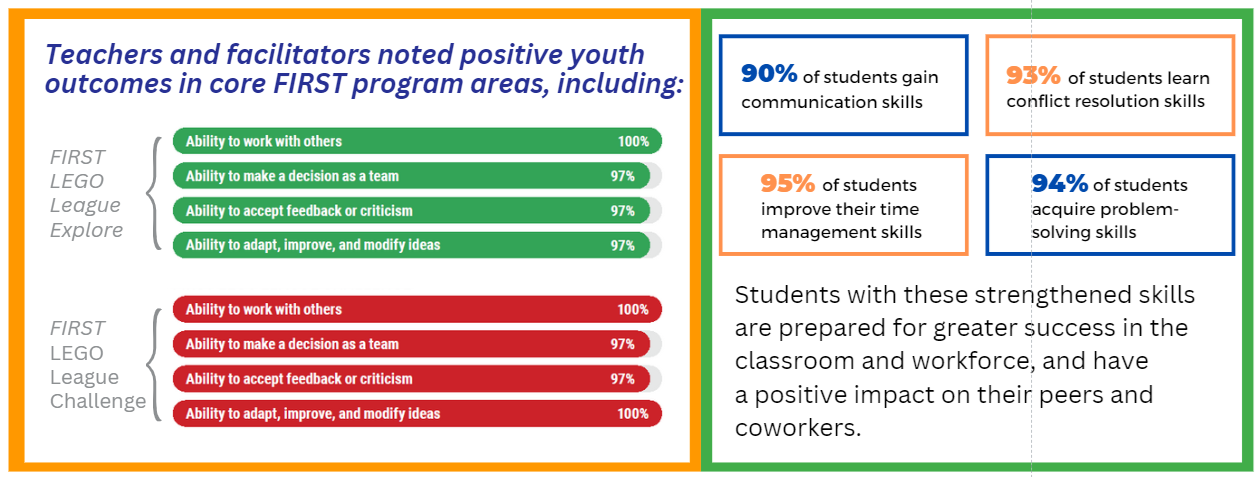

Studies conducted by Brandeis University have found that students who participated in a FIRST program showed significant improvements in their interest in STEM fields, interest in STEM careers, and STEM knowledge. The studies also found positive impacts for all participants, including women, low-income students, and minority students
